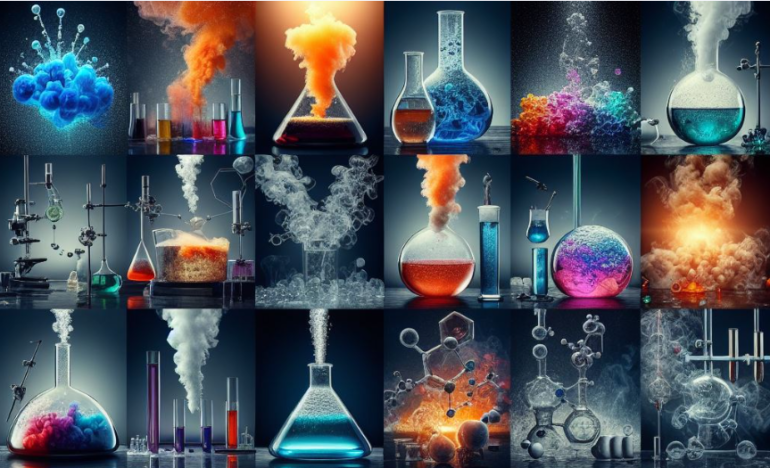TL;DR:
- University of Cambridge, in partnership with Pfizer, unveils the chemical reactome platform.
- The reactome combines AI and automated experiments to predict chemical reactions, expediting drug development.
- Over 39,000 reactions data were used to identify correlations between reactants, reagents, and outcomes.
- Published in Nature Chemistry, this data-driven approach marks a significant advancement in chemical discovery.
- The reactome has the potential to revolutionize drug development and benefit various industries.
- MIT also introduces a machine learning model to predict chemical reactions, potentially accelerating research.
- Cambridge’s model allows precise alterations to molecule cores, enhancing drug design.
- Machine learning’s application in chemistry overcomes data scarcity challenges.
Main AI News:
In a groundbreaking collaboration with Pfizer, the University of Cambridge has unveiled a game-changing platform known as the chemical reactome. This innovative platform seamlessly integrates automated experiments with cutting-edge artificial intelligence (AI) to predict chemical reactions. The primary objective? To expedite the drug development process by gaining a more profound and efficient comprehension of chemical reactivity.
Drawing upon a vast dataset of over 39,000 pertinent reactions, the reactome meticulously uncovers intricate correlations between reactants, reagents, and reaction outcomes. Leveraging data sourced from high-throughput automated experiments, this transformative creation is poised to reshape the landscape of chemical discovery. The research, recently published in Nature Chemistry, marks a pivotal shift from the traditional trial-and-error approach to a data-driven paradigm, offering profound insights into the realm of organic chemistry.
This groundbreaking tool has the potential to revolutionize drug development and extend its benefits to diverse industries engaged with molecular substances. Emma King-Smith, PhD, from Cambridge’s Cavendish Laboratory, expressed, “The reactome could redefine our perception of organic chemistry. A profound understanding of chemistry could pave the way for accelerated pharmaceutical production and the creation of various invaluable products. Most importantly, the knowledge we aim to amass will be a priceless resource for all individuals working with molecules.”
Furthermore, in a separate publication featured in Nature Communications, the research team introduces a machine learning innovation that empowers chemists to make precise alterations to specific segments of a molecule. This advancement promises expedited drug design without the necessity of rebuilding molecules from the ground up. The machine learning model forecasts the precise sites within a molecule that will react and predicts how the reaction’s location varies under different conditions. Notably, this development addresses the complexities of late-stage functionalization reactions, providing chemists with a predictive tool to enhance screening and design adaptations in the realm of drug development.
Recent strides at the Massachusetts Institute of Technology (MIT) have also made waves in the realm of machine learning for chemistry. Their pioneering model exhibits the potential to significantly hasten the prediction of chemical reactions. According to MIT News, this model could be harnessed to empower researchers in developing novel reactions and catalysts for the production of new pharmaceuticals. It can also simulate naturally occurring chemical reactions, akin to those fundamental to the processes of life on Earth.
Heather Kulik, senior author of the study and associate professor of chemistry and chemical engineering at MIT, emphasized the importance of understanding transition state structures, stating, “Knowing that transition state structure is really important as a starting point for thinking about designing catalysts or understanding how natural systems enact certain transformations.”
The researchers at Cambridge proudly assert that their model equips chemists with the precision to fine-tune the core of a molecule. This revolutionary application of machine learning in the field of chemistry overcomes the challenge posed by limited data availability in the vast expanse of chemical space. Alpha Lee, PhD, lead researcher, explains, “The application of machine learning to chemistry is often constrained by the scarcity of data relative to the immense scope of the problem. Our approach, designing models that learn from extensive but not identical datasets, tackles this fundamental challenge of data scarcity and holds the potential to unlock breakthroughs beyond the realm of late-stage functionalization.“
Conclusion:
The unveiling of the AI-infused chemical reactome and MIT’s machine learning model marks a significant shift towards data-driven chemical research. This innovation promises to expedite drug development and enhance molecule manipulation, potentially revolutionizing the pharmaceutical and chemical industries. Businesses should closely monitor these developments to stay competitive in a rapidly evolving market.

